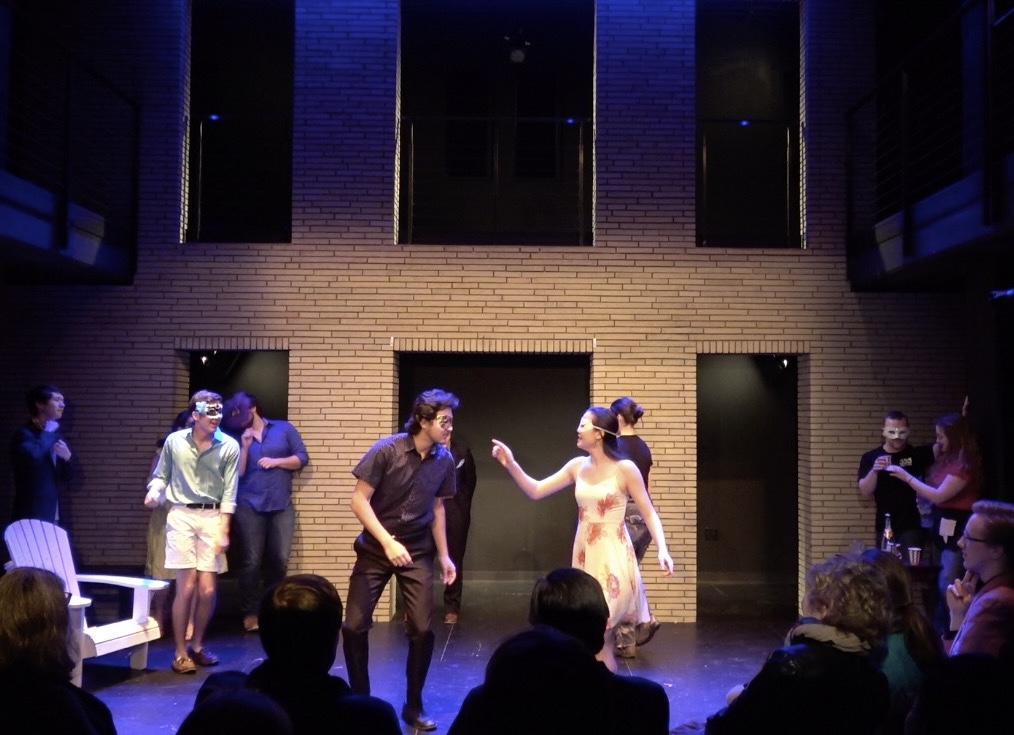Philosophy of Science
“Learning to Let Go: Towards a Pluralist Pedagogy of Energy”
I have long been frustrated by the concept of energy in the natural sciences. Across disciplines, it appears in various forms (and metaphors) for various purposes, yet the law of conservation of something called “energy” stands as the foundation of modern science. In this research, I surveyed the historical origins and evolution of what students today often take to be an axiomatic concept and considered the metaphysical-pedagogical implications of teaching “energy” this way.
“Living in the Grey: Uncertainty, expertise, and the case of judicial oversight of climate policy”
The system of executive agencies in the United States seems to avoid worries about experts in democratic government by uniting scientific expertise and political authority, while still maintaining democratic accountability. Yet by analyzing the Supreme Court’s EPA jurisprudence, I found that both scientific and legal experts face a problem of “second-order uncertainty,” creating an uncomfortable zone of blended authorities where experts can legitimately make political judgements but have a high risk of overstepping their bounds.
“Value-Laden Sciences as MacIntyrean Practices: Reframing the Debate”
In 2000, Heather Douglas famously revitalized the mid-century critique of the value-free ideal in science, generating a new subfield in contemporary philosophy of science. The current state of that field is best characterized by what Holman and Wilholt (2022) call “the New Demarcation Problem” between legitimate and illegitimate value influence in science. I argued that even the most plausible version of demarcation (Wilholt’s coordination-based objectivity) still demands shared standards of “good science.” The better approach is to reframe the problem entirely by inquiring into the value of science. To this end, I analyzed Alasdair MacIntyre’s under-studied philosophy of science to posit that, science to “work” for society, it must first and foremost be a pursuit of truth.
History of Science
“Physicians and midwives as medical expert witnesses in the 17th century”
Inspired by the work of Bradford Bouley on the Quaestiones medico-legales of Paulo Zacchia (1584-1659), I investigated the kinds of evidence and reasoning that medical expert witnesses appealed to when the (female) bodies at issue were inaccessible to them. I found that in such cases, Zacchia argued from pre-established medical premises to conclusions that contradicted the first-hand witness of female examiners. Beyond gender, records from contemporary ecclesiastical courts suggests that the appeal to theoretical and authoritative arguments was necessary to validate physical evidence.
“‘Making man a god’”: How Shakespeare’s Pericles Complicates the Story of English Paracelsianism”
Shakespeare’s late romance Pericles features one of many alchemists in Elizabethan/Jacobean theater. Yet while Shakespeare’s character embodies both Paracelsian practice and philosophy, his elite social status and Classical paganism seem to contradict the narrative of scholars who associate Paracelsianism with social populism and religious Protestantism. The presence of this nuanced Paracelsian character in a popular play suggests that social or religious reformers were not the only ones who turned to alchemical medicine.
“Pick Your Poison: Early Modern Medical Theory in Practice”
Since ancient times, poison was an area of active medical debate. By comparing two different 16th-century English texts about poison, a forensic report and a theological pamphlet, I argued that medical theories of poison shaped and were shaped by non-medical concerns. The availability of both Galenic and Paracelsian theories allowed physician John Cotta to authorize his own expert judgement in a poisoning case, while physician-theologian William Turner used various definitions of poison as not powerful spiritual metaphors.
Religion and Literature
Shakespeare’s The Winter’s Tale and Kierkegaard
One of Shakespeare’s last plays expounds and expands themes crucial to Kierkegaard: the essential role of faith in human relationships, the fragility of such faith, and the necessity of miracle to mend broken faith. I argue that this is the way to understand Shakespeare’s poetic craft in the play.
Falstaff in Theological Context
Inspired by Marilynne Robinson’s studies of the theological context of Shakespeare’s works, I investigated the relationship between Shakespeare’s depiction of Sir John Oldcastle (Falstaff) and the real Oldcastle, a Lollard revolutionary. Falstaff does resemble the vibrant preaching and anti-authority of the Lollards, yet he also associates himself with another pre-protestant figure: the Bible-smuggling weavers. Shakespeare manages to lambast Lollardy while more subtly undermining the false religion of the monarch
Not Research
I have loved working as a soccer coach and teacher/tutor. My creative ventures include directing Shakespeare’s Much Ado About Nothing and The Winter’s Tale and some freelance professional dramaturgy. I hope to direct Measure for Measure next. I am currently working on adapting my favorite book for the stage, and I have a draft of a play about Josiah Willard Gibbs and statistical mechanics.
